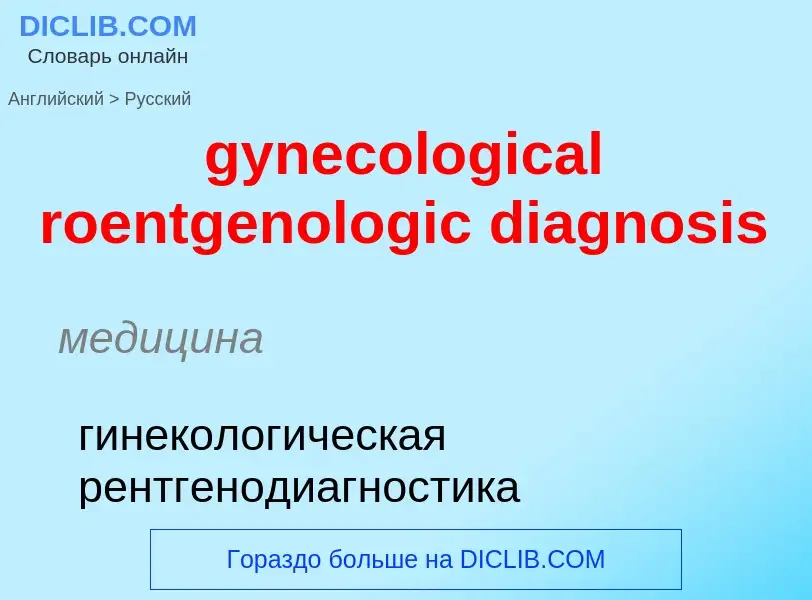Перевод и анализ слов искусственным интеллектом ChatGPT
На этой странице Вы можете получить подробный анализ слова или словосочетания, произведенный с помощью лучшей на сегодняшний день технологии искусственного интеллекта:
- как употребляется слово
- частота употребления
- используется оно чаще в устной или письменной речи
- варианты перевода слова
- примеры употребления (несколько фраз с переводом)
- этимология
gynecological roentgenologic diagnosis - перевод на русский
медицина
гинекологическая рентгенодиагностика
['vindikeit]
общая лексика
обосновать
обосновывать
подтверждать
глагол
общая лексика
доказать
подтвердить
отстаивать
защищать
поддерживать
оправдывать
реабилитировать
доказывать
юриспруденция
взыскать
истребовать
синоним
общая лексика
дифференциальный диагноз
медицина
различительный диагноз
нефтегазовая промышленность
дифференциальная диагностика
Определение
Википедия
Diagnosis-related group (DRG) is a system to classify hospital cases into one of originally 467 groups, with the last group (coded as 470 through v24, 999 thereafter) being "Ungroupable". This system of classification was developed as a collaborative project by Robert B Fetter, PhD, of the Yale School of Management, and John D. Thompson, MPH, of the Yale School of Public Health. The system is also referred to as "the DRGs", and its intent was to identify the "products" that a hospital provides. One example of a "product" is an appendectomy. The system was developed in anticipation of convincing Congress to use it for reimbursement, to replace "cost based" reimbursement that had been used up to that point. DRGs are assigned by a "grouper" program based on ICD (International Classification of Diseases) diagnoses, procedures, age, sex, discharge status, and the presence of complications or comorbidities. DRGs have been used in the US since 1982 to determine how much Medicare pays the hospital for each "product", since patients within each category are clinically similar and are expected to use the same level of hospital resources. DRGs may be further grouped into Major Diagnostic Categories (MDCs). DRGs are also standard practice for establishing reimbursements for other Medicare related reimbursements such as to home healthcare providers.

